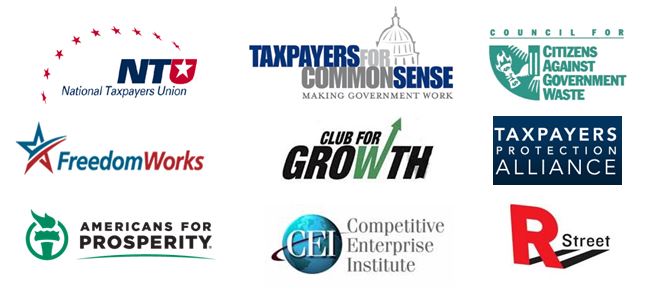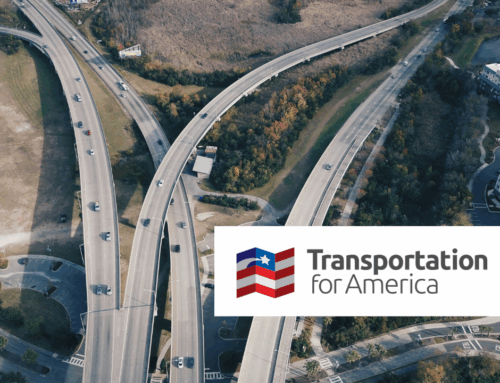|
May 8, 2013 Dear Senator: On behalf of the millions of members our organizations represent, we urge you to make fundamental changes to the misguided and costly provisions in S. 601, the Water Resources Development Act (WRDA). Unless WRDA is significantly amended to be more responsible and less costly, we urge you to oppose the bill. Costly – The price tag for WRDA will be far greater than the $12 billion in the Congressional Budget Office (CBO) estimate. In fact, it could easily be double. The provision (Section 1003) to allow the Administration to disregard cost containment caps for three years could end up costing taxpayers billions more than CBO estimated. CBO indicated that they only counted three projects that are currently eligible. But the administration has indicated that 30 or more projects could be eligible before the provision sunsets. In addition, the CBO score does not include the legislation’s mandated increase in spending from the Harbor Maintenance Trust Fund which would represent up to a $5.5 billion increase in the 10-year score. Furthermore, there are a litany of changes to allow increased in-kind crediting for local sponsors work, which serve to increase the cost to taxpayers. And the bailout of the barge industry, through full federalization of the Olmsted Locks and Dam project, puts taxpayers on the hook for both the project’s runaway $3 billion price tag and will require all non-federal funds contributed so far be reimbursed to the Inland Waterways Trust Fund. This back door budget gimmick will allow the same money to be spent twice to subsidize other over budget projects. Earmarkish – While the committee avoided outright earmarks, there are several provisions that are akin to earmarks. Section 2047 deals with flood gates that are constructed, before enactment of the bill as part of hurricane protection project and cross an inland navigation channel, a very rare circumstance. For these lucky project sponsors, instead of the operations and maintenance (O&M) costs being 100 percent local responsibility, the federal government would be responsible for 65 percent of those costs. The provision targets a pair of floodgates in New Orleans. Title VIII, which deals with the Harbor Maintenance Trust Fund sets the precedent that those funds may be used for dredging berths (the driveway and parking spot for ships) and constructing confined disposal facilities for contaminated sediments, both of which have traditionally been a non-federal responsibility. It also creates special program for “donor ports” and “energy ports” that would provide them with extra funding. While this provision could benefit other ports, it appears to be heavily targeted toward the ports of Los Angeles and Long Beach in California (donor ports) and New Orleans (energy port). Numerous other highly parochial provisions have been air dropped into the managers amendment. Blanket approval to Corps – The bill appears to simply rubber stamp whatever project or cost overrun approval the U.S. Army Corps of Engineers recommends. While we appreciate the effort to avoid earmarks for new project authorizations, we believe the response should not be to just approve whatever the Administration recommends, but to demand projects meet certain enhanced cost-benefit criteria, subject them to prioritization, and to limit the number of projects. With an estimated project backlog of more than $60 billion for the agency, we cannot simply pile more projects on the to-do list. Zombie Beaches – The bill has a provision to simply extend beach replenishment projects that are reaching the end of their 50-year life. This provision not only allows nourishment projects to be extended by 15 years with some additional study, but provides a by-default extension of up to 3 years while the Corps studies whether to extend federal involvement. This provision has been long sought on behalf of two North Carolina beach projects. These are projects that were conceived in the 1960s and have benefitted from heavy federal subsidies. Lawmakers should not automatically extend these, or other, projects without thorough review. In addition, this would end-run 1999 cost-sharing changes that required local interests pay 50 percent of ongoing renourishment costs and grandfather a reduced 35 percent rate. Backlog management -The bill contains a “BRAC” style commission to reduce the backlog of authorized but not constructed projects, but so many projects are excluded from consideration it is far from clear that this effort will help. In fact, this bill could result in an increase in the backlog by adding billions more in new authorizations than the “BRAC” deauthorizes and increasing the federal share of projects costs thus reducing the “buying power” of each federal dollar. Un-kind contributions – In-kind contribution changes in Sections 2011, 2012, and 2013 threaten to undermine the long-established cost-share system, increase the federal tab for projects, and reduce Congress and Corps oversight and direction on federal water projects. Corps projects typically have some amount of local cost-sharing which can be met in part by in-kind contributions to help the project along. The changes in S. 601 would retroactively change the rules (going back to 2007) to allow more projects to be eligible for in-kind credits (including the notoriously wasteful “environmental infrastructure” projects). They would allow “banking” of credits greater than the required local share to be used to offset local costs on other projects – this would increase federal project costs. And lastly, allow for crediting of local interests work, including study and design, prior to agreements between the federal government and locality or even a determination of a federal interest in a project. This could turn the Corps into simply a middle man to pass federal cash through to local interests. Furthermore, it could skew project decisions away from national interest toward special interest. Worse on the Floor – It is clear that there will be several amendments to make this bill worse on the floor. Most notably will be efforts to further bailout the virtually bankrupt Inland Waterways Trust Fund by eviscerating cost share rules through Senator Casey’s (D-PA) S. 407, Reinvesting In Vital Economic Rivers and Waterways Act. The history of WRDAs past indicates there will be strong efforts to increase the cost of this bill through many other amendments with parochial or project-specific benefits.
S. 601 is chock full of policy proposals and project approvals that would be very costly for taxpayers. In its current form this bill should be rejected. For more information contact Josh Sewell, 202-546-8500 or Josh Sincerely,
Americans for Prosperity |











